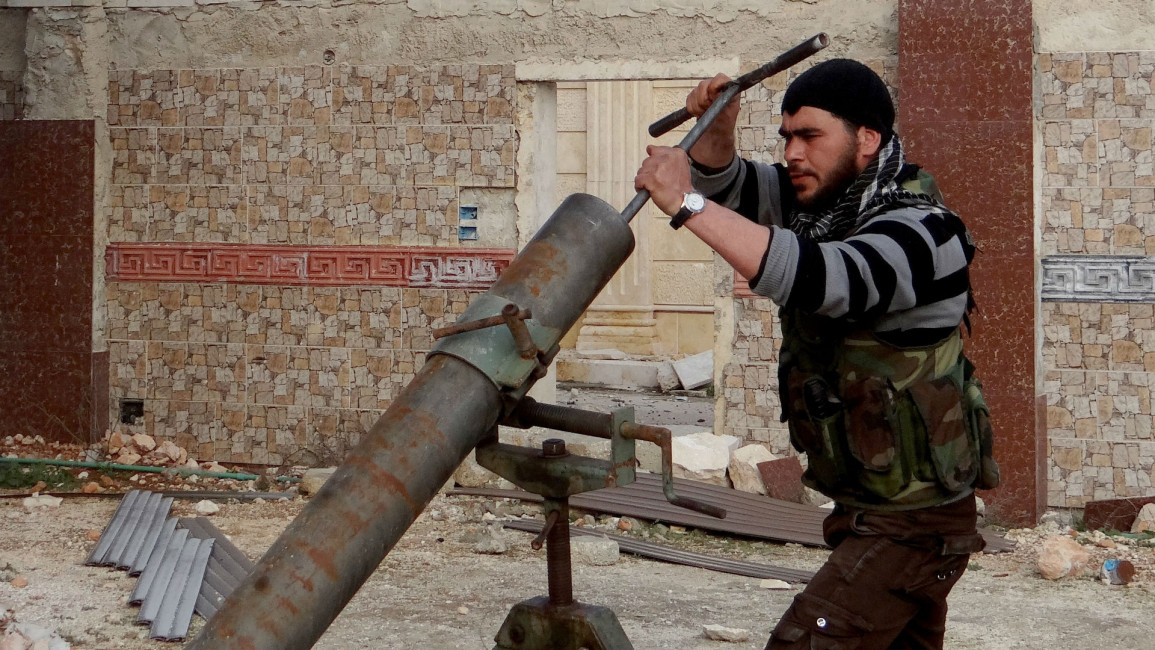Assad launches Aleppo offensive while agreeing to UN ceasefire
Syrian government troops began a new offensive around Aleppo on Tuesday, seeking to encircle rebels in the northern city and break the siege on two pro-regime villages.
Around 100 fighters on both sides have been killed, according to monitoring group the Syrian Observatory for Human Rights.
The offensive began on the same day that UN envoy Staffan de Mistura addressed the UN Security Council on his attempts to establish a ceasefire, including a plan to "freeze" fighting in Aleppo.
Mistura said the Syrian government agreed to suspend aerial bombing of the city for six weeks to allow the proposed UN ceasefire plan to be tested.
A Syrian military source said government troops had seized two villages north of Aleppo and were engaged in fierce fighting for control of a third.
The villages are strategically located by a road that serves as a key supply route for the rebels, leading from the east of Aleppo to the Turkish border.
As they launched the attacks, government forces also began shelling two towns on the road to Nubol and Zahraa, both government-held Shia villages.
Nubol and Zahraa have been under rebel siege for more than 18 months, and pro-government militants inside the villages have repelled several attacks.
The Observatory also said foreign pro-regime fighters were among the dead in the fighting.
"The regime troops have two goals in the area: to cut the road leading from Aleppo to the Turkish border, which is the key supply road for the rebels, and to open the way to Nubol and Zahraa," Observatory director Rami Abdel Rahman said.
Fierce clashes in the city
The offensive in northern Aleppo province was accompanied by renewed fighting inside Aleppo city, which is divided between rebel and regime control.
The Observatory reported fierce clashes in several parts of the government-controlled west of the city as well as rebel rocket fire into several western neighbourhoods.
It said 45 rebels were killed in Aleppo province and city, as were 50 soldiers and other regime forces. It also reported 14 civilians killed in areas controlled by both sides.
Once Syria's industrial powerhouse, Aleppo has been split between rebel control in the east and regime control in the west since shortly after fighting began there in mid-2012.
In the surrounding countryside the situation is largely the reverse, with rebels controlling much of the area west of the city and regime forces much of the east.
Government forces advanced around the east of the city last year, but the front lines had been relatively static in recent weeks.
On Monday, the Observatory reported an influx of regime reinforcement and the Syrian daily Al-Watan, which is close to the government, said regime forces planned to encircle the city in a new offensive.
"Aleppo is very important for us," a Syrian military source told AFP on Tuesday.
Potentially serious escalation
"The main goals are to break the siege of Aleppo and open the road to Nubol and Zahraa," he added.
The new offensive comes shortly after regime forces opened a new front in southern Daraa province.
"This military operation in Aleppo proves the ability of the Syrian army to open multiple fronts at once," the military source said.
Noah Bonsey, a Syria expert at the International Crisis Group, said the offensive represented a potentially serious escalation by the regime.
"If the regime were able to take these villages, and if it can hold them and break the siege on Nubol and Zahraa, these would be very significant developments taken together," he said.
"But those are big ifs."
The offensive began as UN envoy de Mistura prepared to address the Security Council.
He has advanced a plan for a "freeze" to the fighting in Aleppo, in a bid to ease the humanitarian situation and provide an example for ceasefires elsewhere.
But the proposal has gained little traction, and de Mistura drew criticism from the opposition last week after describing Syria's President Bashar al-Assad as "part of the solution" to the conflict.
The rebels and opposition insist Assad's departure is a precondition for resolving the country's brutal war, which began in March 2011 with peaceful anti-government protests.
It spiralled into a civil conflict after a government crackdown, and the violence has killed more than 210,000 people.



